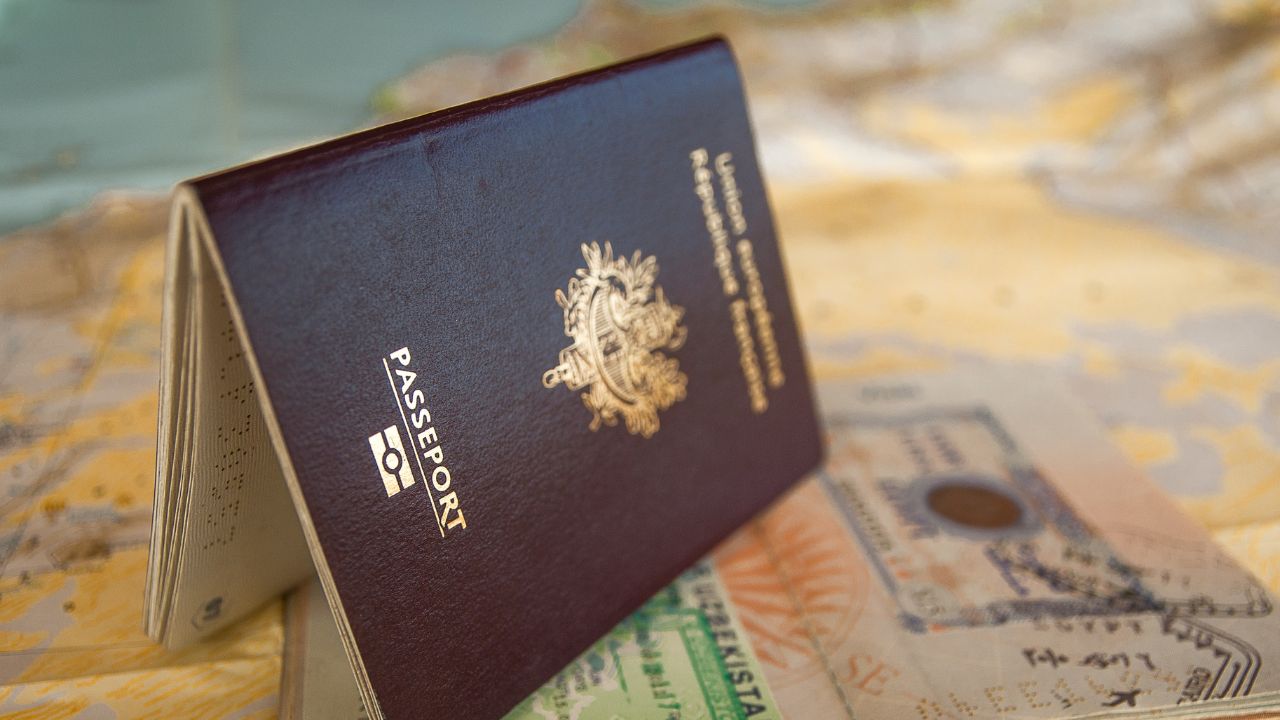
UAE and Yemen Strengthen Legal and Judicial Cooper
UAE and Yemen attorney generals met in Abu Dhabi to strengthen legal ties, enhance public prosecutio

The Trump administration announced on Thursday, August 21, 2025, a major new crackdown on foreigners in the United States by reviewing all valid visas. The review will cover more than 55 million people, including tourists, students, and workers, to identify any potential violations of U.S. laws or visa rules. This is part of a broader effort by the government to tighten control over who is allowed to stay in the country and to improve national security.
Officials said this process is called “continuous vetting,” which means that even after a visa is issued, the U.S. government keeps checking records, social media, and other available information to ensure that visa holders are still eligible to stay in the country. If a person is found ineligible—due to criminal activity, overstaying a visa, threatening public safety, or supporting terrorist organizations—their visa can be revoked immediately. Those currently in the U.S. could then face deportation.
Since Donald Trump returned to the White House, his administration has intensified its focus on deporting people illegally staying in the U.S. and monitoring students and visitors who enter on legal visas. This latest move signals a much broader and systematic approach, which could affect nearly every visa holder in the country, not just those on student visas or in politically sensitive programs.
Officials outlined the kinds of violations that can trigger a visa revocation, including:
* Staying in the U.S. beyond the allowed time on the visa.
* Committing crimes such as assault, drunk driving, or other offenses.
* Engaging in activities that threaten national security or public safety.
* Supporting or providing aid to terrorist groups or countries that sponsor terrorism.
The State Department explained that visa monitoring does not stop once a visa is granted. “We review all available information as part of our vetting process, including law enforcement and immigration records, or any other new information that comes to light after visa issuance,” officials said.
Impact on Workers and Truck Drivers
In addition to reviewing all visa holders, the administration announced immediate changes to work visas for commercial truck drivers. Secretary of State Marco Rubio stated that foreign drivers operating large tractor-trailer trucks on U.S. roads pose safety risks and may take jobs away from American truckers. The administration has already introduced rules requiring truck drivers to speak and read English proficiently. These measures are aimed at preventing road accidents and improving safety for all road users.
The Trump administration has steadily added more restrictions and requirements for visa applicants, including mandatory in-person interviews, submission of personal information, and review of social media activity. Previously, continuous vetting mainly focused on students involved in politically sensitive activities. Now, it has expanded to almost all visa holders, covering tourists, workers, students, and exchange visitors.
Social Media and Technology Checks
As part of the expanded vetting, the government will review social media accounts, law enforcement and immigration records, and any other online or offline information that might indicate a violation of U.S. laws. New requirements introduced earlier this year make it mandatory for applicants to turn off privacy switches on cellphones and apps during visa interviews. This allows officials to check online activities for potential red flags.
Statistics and Previous Visa Revocations
According to the State Department, since Trump returned to office:
* More than twice as many visas have been revoked compared to the same period last year.
* Nearly four times as many student visas were canceled.
* More than 6,000 student visas were revoked for overstays or law violations, such as assault, drunk driving, or support for terrorism.
* Around 200–300 visas were canceled specifically for terrorism-related concerns, including support for terrorist organizations or state sponsors of terrorism.
Most foreigners seeking to enter the U.S. must obtain visas, especially those planning to study, work, or live for extended periods. Some countries, mainly in Europe and Asia, are part of the Visa Waiver Program, which allows citizens to enter for up to three months without a visa. Large and highly populated countries, including China, India, Indonesia, Russia, and many African nations, are not part of this program. Citizens from these countries must apply for and receive visas before traveling to the U.S.
Significance of the Visa Review
This sweeping review shows the Trump administration’s determination to protect U.S. national security, enforce immigration laws, and ensure public safety. It represents one of the largest visa monitoring programs in U.S. history, covering millions of people from around the world. The policy could have significant consequences for travelers, students, and workers who legally enter the U.S., as even minor violations could result in visa revocation or deportation.
Experts say this move could create uncertainty for foreign visitors and make visa holders more cautious about complying with U.S. laws while in the country. The administration argues that these measures are necessary to prevent terrorism, criminal activity, and other threats to American citizens.
What This Means for Travelers
* Students must ensure they follow all visa rules and avoid any criminal activity.
* Workers, including truck drivers and temporary staff, must comply with U.S. labor and safety regulations.
* Tourists could face visa revocation if found ineligible, although short-term visitors from Visa Waiver Program countries are mostly unaffected.
This new crackdown emphasizes that no visa is permanent, and ongoing monitoring will continue to be a central part of U.S. immigration policy under the current administration.